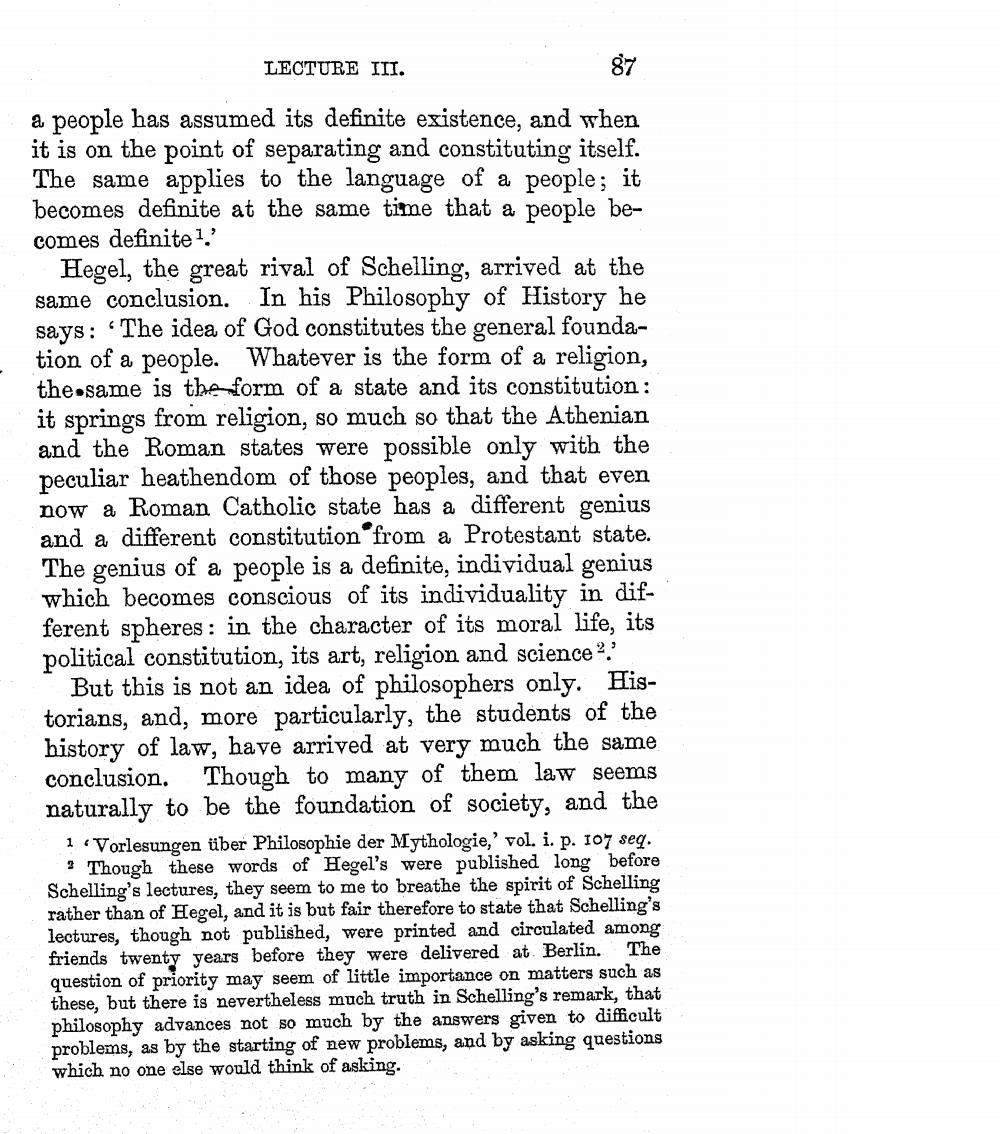________________
87
a people has assumed its definite existence, and when it is on the point of separating and constituting itself. The same applies to the language of a people; it becomes definite at the same time that a people becomes definite1.'
LECTURE III.
says:
Hegel, the great rival of Schelling, arrived at the same conclusion. In his Philosophy of History he The idea of God constitutes the general foundation of a people. Whatever is the form of a religion, the same is the form of a state and its constitution: it springs from religion, so much so that the Athenian and the Roman states were possible only with the peculiar heathendom of those peoples, and that even now a Roman Catholic state has a different genius and a different constitution from a Protestant state. The genius of a people is a definite, individual genius which becomes conscious of its individuality in different spheres: in the character of its moral life, its political constitution, its art, religion and science".'
But this is not an idea of philosophers only. Historians, and, more particularly, the students of the history of law, have arrived at very much the same conclusion. Though to many of them law seems naturally to be the foundation of society, and the
1 Vorlesungen über Philosophie der Mythologie,' vol. i. p. 107 seq. Though these words of Hegel's were published long before Schelling's lectures, they seem to me to breathe the spirit of Schelling rather than of Hegel, and it is but fair therefore to state that Schelling's lectures, though not published, were printed and circulated among friends twenty years before they were delivered at Berlin. question of priority may seem of little importance on matters such as these, but there is nevertheless much truth in Schelling's remark, that philosophy advances not so much by the answers given to difficult problems, as by the starting of new problems, and by asking questions which no one else would think of asking.
The




